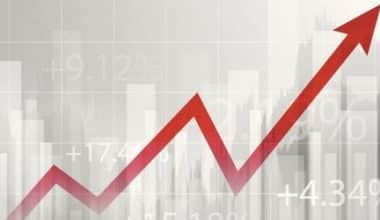Reading a book is one way for beginners to educate themselves on real estate investing. Understanding the fundamentals of investing and the various options available to you will help you make the best decision for your financial future. As a beginner, you should make an effort to learn the benefits and drawbacks of any real estate investment you are considering, including fix and flip, rentals, raw land, online investments, and real estate investment trusts (REITs).
One of the best tools for novice investors when it comes to stock market investing is a book. Numerous books are available on a variety of subjects, including the stock market, money, real estate, and other subjects.
We hope this article will shed some light on the best investing books for total beginners.
Investing for Beginners Book
#1. A Random Walk Down Wall Street by Burton Malkiel
A Random Walk Down Wall Street is the best investment manual money can buy, regardless of whether you’re thinking about making your first 401(k) contribution, retiring, or anything in between. You can steer a straight course through the choppy waters of today’s financial markets with the help of Burton G. Malkiel’s authoritative insights in this new edition, which cover the full spectrum of investment opportunities and include insightful new information on cryptocurrencies like bitcoin and “tax-loss harvesting.”
#2. The Intelligent Investor by Graham Benjamin
It’s a great place to start learning about investing because the book is well written and structured. It imparts the first lessons that should be taught to newcomers, which are how to set reasonable goals and manage risk. This is a great book for beginners interested in investing
Containing a thorough explanation of how various markets function, what to look for, how to determine ROI, and much more. It teaches you how to develop a comprehensive understanding of investing across all asset classes, including stocks, real estate, foreign exchange markets, options, futures, etc.
Both novice and experienced investors can benefit from it because it concentrates on timeless and crucial advice. A few well-known investors claim to read it again The Intelligent Investor, along with Graham’s other masterpiece Security Analysis, is probably a book that novice investors should read because it can increase any investor’s returns.
#3. Investing in Your 20s & 30s for Dummies by Eric Tyson
This book provides answers to a wide range of questions, including whether or not to invest in cryptocurrencies, risks, and returns, selecting the best advisors, and using investments to achieve your goals and stocks to real estate.
He covers investing for short-term goals, saving for a down payment on a home, making plans for retirement and financial independence, getting insurance, and determining your risk tolerance. He claims that the currencies have almost no intrinsic value and that investing in them could result in losses and dissatisfaction for investors.
#4. The Little Book Of Common Sense Investing by J.C. Bogle
More than any other person in history, Jack Bogle has made a difference for the small investor. Purchasing and holding diversified index funds is the best decision for the individual investor. The main lesson to be learned from the book is to avoid buying single stocks and to instead purchase the entire haystack rather of trying to find a needle in a haystack.
Taxes and expense ratios have the biggest impacts on investors’ returns. Retail investors’ average total returns are reduced to around 2% because they invest emotionally. Investing in and holding an S&P 500 index fund is a better option for everyone than trading individual stocks frequently. Beginners can use this book as a source to learn more about investing
The key to success in the stock market is to hold onto a diversified portfolio of stocks for the long term. In theory, beating the stock market is a zero-sum game (there must be winners and losers), but after deducting the high costs of investing, it becomes a loser’s game.
#5. Rich Dad, Poor Dad by Robert Kiyosaki
It’s a common misconception that to succeed financially, you must start your own business. He advises those who are employed to continue doing so and make as much money as they can, which they can then use to purchase assets. As a result, you will be able to continue earning money and reinvesting it into assets to generate compound interest.
Most people make the error of working hard to earn money but then immediately spending it on liabilities. Robert claims that this is the outcome of teachers repeatedly telling students to work hard for money while they are in class without teaching them what an asset or liability is. Understanding the difference between an asset and a liability as well as how to invest in assets will lay a solid foundation for the creation of future wealth.
One of the books on wealth management and investing is most frequently recommended. It’s a good enough introduction to these ideas because the book explains the fundamentals of wealth generation in an accessible and motivating way. According to Kiyosaki, to get away from debt, investors should only put money into assets that have a yearly or monthly cash flow and offer potential growth in equity value.
#6. The Joys of Compounding by Baid Gautam
Crawling is the step before walking. You can better understand compounding before investing if you commit to lifelong learning. Compounding is the practice of reinvesting an asset’s profits, whether they come from capital gains or interest, to generate future profits.
Surprisingly, this book is more than a thorough examination of investing and compounding. It makes an effort to teach you life lessons that will help you improve. Investment in common stocks, managing a portfolio and making decisions are covered in the last two-thirds of the book.
#7. Thinking, Fast and Slow by Daniel Kahneman
The 2002 Nobel Prize in economics was awarded to Daniel Kahneman, a professor of behavioral and cognitive psychology at Princeton who also wrote the best-selling book Thinking Fast & Slow about cognitive biases and heuristics.
This book explains how our ingrained biases cloud our judgment when making both long-term investments and day-to-day choices. If you want to be a successful investor, it is crucial to be aware of your biases and tendencies.
#8. One Up On Wall Street by Peter Lynch
Peter Lynch describes how common investors can outperform experts by applying what they already know in One Up on Wall Street. Lynch asserts that there are investment opportunities everywhere, from the grocery store to the workplace, where we regularly come into contact with goods and services.
We can identify businesses to invest in before professional analysts do by focusing on the best ones. It equips a novice investor with the proper attitude and caution. Every concept is succinctly explained using simple, real-world examples from Lynch’s vast investing experience.
It is brutally honest. It is open about the challenges that come with investing. The main point is that while investing is not for everyone, it can be for anyone. Anyone with a strong desire to learn more about business or investing and no prior experience would make a great read for this book.
#9. The Richest Man In Babylon by George Clason
It provides a thorough explanation of how to save money and use it to generate more income. This book, which is written in the form of a true story, teaches beginning investors how to take charge of their finances, start paying off debt, and put money aside to accumulate savings. It then goes on to show how to use those savings to increase investments. It serves as a great reminder for seasoned investors not to take too many unnecessary risks and jeopardize the money tree they have already built, as well as a great example for new investors to learn how to make wise financial decisions. The book is a great illustration of how money develops gradually and that there is no quick and simple path to wealth.
The best way to lose money is quick and simple; lasting wealth cannot be attained this way. Real-world examples of how to create and preserve sustainable wealth, even when they are just starting out and in debt.
Real Estate Investing for Beginners Book
A great way for people to increase their wealth is through real estate investing. But it requires more care than many other kinds of investments, and you need to be knowledgeable if you want to succeed. Here are our recommendations for books on real estate investing for beginners
#10. The Book Rental Property Investing by Brandon Turner
This is among the most well-known books on real estate investing, and it offers a thorough overview of what you must do to succeed, from assembling your team of experts (including CPAs, lawyers, and contractors) and choosing the best locations to successfully managing your properties and having an exit strategy. You should try to read this excellent book by Brandon if investing in real estate involves renting out properties a lot.
This book will show you how to use a variety of strategies to generate a sizable cash flow and excel as a real estate investor. demonstrates how to invest wisely in real estate and use buy-and-hold strategies to generate wealth and passive income. How to understand why most investors fail, suggestions for preserving your wealth, and tax-deferral strategies. The book is excellent for real estate beginners.
#11. ‘How to Invest in Real Estate by Joshua Dorkin and Brandon Turner
This is a great place to start learning about real estate if you have very little knowledge of it but are considering dipping your toe into the world of real estate investing.
The book begins by clearing up some frequently asked questions (and myths — no, investing in real estate is not a way to “get rich quick”). It also provides a helpful overview of the various real estate investing strategies that are available and is stuffed full of great advice to help you get a sense of how this world works and what you’ll need to do to succeed in it.
The book discusses the different strategies you can use in real estate investing by beginners, as well as the techniques you can employ to maximize your options.
You can learn from real estate investors’ wealth of knowledge by reading their motivational first-hand accounts. You can learn a lot from their mistakes, and they’ll give you a good place to start.
Additionally, the book will demonstrate how to make the most lucrative real estate investments, particularly if you are still working a full-time job.
#12. Millionaire Real Estate Investor by Gary Keller
Anyone who wants to become wealthy must first understand the fundamental principles and thought processes that underpin it. The millionaire real estate investor, then, is a culmination of the knowledge and experience of over a hundred millionaires from various backgrounds who pursued and attained financial wealth through real estate.
So, in essence, this book is a manual that outlines tried-and-true financial wealth-building principles and models that are based on real estate and that reward your persistence and patience. Millionaire real estate investor is a book that beginners interested in investing can read.
He covers a wide range of subjects, such as how to cultivate an investor’s mindset fit for a millionaire, which brings us back to our initial discussion of mindset, as well as widespread misconceptions about money and investing, especially those that prevent people from taking action. He talks about how to focus on important terms and elements of transactions when putting together or looking for deals, how to develop sound criteria for identifying excellent real estate investment opportunities, and how to get the best deals.
The book “The ABCs of Real Estate Investing” isn’t as much of a step-by-step manual as some of the other books on this list, but it is jam-packed with real estate investing information and guidance that makes it a great read for people who already have some experience and are looking to move into investing in larger multi-unit properties.
This book will show you how to excel at real estate investing as well as how to take the next step in expanding your company. It won’t just show you how to succeed. This is another book for beginners that introduces them to real estate investing. This book will show you how to assess and manage real estate, strike deals, and raise a property’s value to get the best return on your investment.
You will learn the fundamentals of real estate and how to make money to invest in real estate with a consistent cash flow.
#14. Mastering the Art of Commercial Real Estate Investing: How to Successfully Build Wealth and Grow Passive Income from Your Rental Properties’ by Doug Marshall, CCIM
This book should be read by anyone who wants to begin creating a real estate empire, especially beginners who are interested in real estate investing.
The reader will find clear instructions on how to finance and manage commercial real estate investments from Marshall, a seasoned commercial real estate expert, and commercial mortgage broker.
How Should a Beginner Start Investing?
- Set up an emergency fund.
- Learn the fundamentals of investing.
- Set investment goals
- Pick your desired investment amount.
- Plan your investment strategy.
- Open a trading account
- Understanding when and where to buy stocks
- Invest steadily and with patience.
Which Book Should I Read as a Beginner in the Stock Market?
Beginners interested in investing in real estate can pick up a book to read. You can choose to begin with the intelligent investor.
How Should a Beginner Invest $1000?
- Debt repayment
- Utilize robo-advisers to make investments
- Purchase low-risk debt securities such as certificates of deposit.
- Make a single-stock investment.
What Can I Invest in to Make Money Fast?
- Day trading on the stock exchange
- Sell short
- Invest in speculative over-the-counter stocks.
Conclusion
Finding an investing book for beginners is crucial because the majority of successful investors prioritize reading. The most successful people in the world are often voracious readers. It helps you greatly to be able to read excellent books on any industry or subject that you have a strong interest in.
Reading excellent real estate books, taking real estate classes in school, and becoming certified as a real estate professional are some of the best ways to learn about real estate. It’s a smart choice to read a real estate investing book as a novice and go with the second course of action. But there are thousands of real estate books available for you to choose from.
Therefore, the books listed above are some of the best real estate books for beginners who want to start a lucrative career in real estate.
Investing For Beginners Book FAQs
How Should a Beginner Invest $1000?
- Debt repayment
- Utilize robo-advisers to make investments
- Purchase low-risk debt securities such as certificates of deposit.
- Make a single-stock investment
What Are the Investing for Beginners Book?
- The Intelligent Investor
- The Joys of Compounding
- Rich Dad, Poor Dad
- The Richest Man in Babylon
What Can I Invest in to Make Money Fast?
- Day trading on the stock exchange
- Sell short
- Invest in speculative over-the-counter stocks
Related Articles
- INVESTING FOR BEGINNERS: Best Easy Guide in 2023
- BEST PLACE TO BUY STOCKS: 21 Top Picks for Beginners & Pros 2023
- Investing in Real Estate: Guide for Beginners & Pros, Revealed!!!
- 15 BEST REAL ESTATE INVESTMENT BOOKS IN 2023
- Cryptocurrency For Beginners: The Concept of Cryptocurrency (Beginners Guide)
- STOCK INVESTING FOR BEGINNERS: Best 2023 Practices (Detailed)






